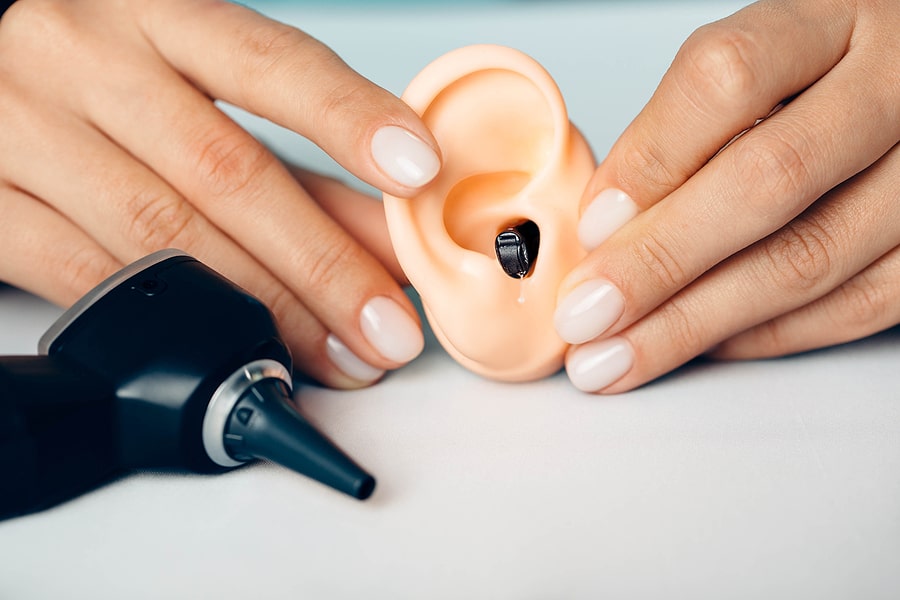
How Long Do Hearing Aids Really Last?
Hearing aids are valuable devices for individuals with hearing loss. They provide immense benefits for communication, mood, and overall quality of life. But they don’t last forever. Just like your phone or laptop, hearing aids wear out over time and need to be upgraded or replaced.
Factors That Affect Hearing Aid Lifespan:
The lifespan of a hearing aid depends on several factors, including the quality of the device, maintenance, and use patterns. Here are some factors to consider when determining how long your hearing aids will last:
- Technology Level: Advanced technology hearing aids tend to have a shorter lifespan than basic models. Advanced hearing aids require more power to operate and may need more frequent updates, resulting in a shorter lifespan. Basic models, on the other hand, tend to have fewer features and require less maintenance, making them last longer.
- Maintenance: Proper maintenance is essential for extending the lifespan of your hearing aids. Regular cleaning, replacing batteries, protecting devices from moisture and heat, and servicing them periodically are critical to keep your hearing aids functioning optimally. Skipping maintenance can reduce the lifespan of your devices.
- Use Patterns: The amount of time you wear your hearing aids and the conditions you wear them in can impact their lifespan. Reducing exposure to high humidity and preventing damage can increase their lifespan.
- Lifestyle: Individuals with active lifestyles may experience a shorter hearing aid lifespan due to wear and tear. Athletes who sweat heavily or engage in rough activities should take extra care in keeping their hearing aids safe and clean.
Tips for Extending the Life of Your Hearing Aids
There are several steps that hearing aid users can take to extend the lifespan of their devices:
- Regular Maintenance: Ongoing maintenance is one of the best ways to extend the lifespan of your hearing aids. Regular cleaning, replacing batteries, and periodic servicing will keep devices functioning at their best.
- Protective Measures: Taking measures to protect hearing aids from moisture, heat, and foreign objects can prolong their lifespan. Ensuring that hearing aids are protected by wearing sweat bands or hearing aid sleeves can protect your hearing aids.
- Proper Storage: When not in use, proper storage can protect hearing aids from damage. Placing them in a protective case and storing them in a safe and dry location will keep them safe from damage.
- Use High-Quality Batteries: Using high-quality batteries will ensure the hearing aids are receiving uniform power. Using sub-standard batteries can cause issues with performance, including a shorter lifespan.
- Handle with Care: Hearing aids are relatively delicate devices. Consequently, it’s best to handle hearing aids with care. Cleaning devices regularly and avoiding hard knocks can reduce the risk of damage.
When is it Time to Replace Your Hearing Aids?
Even with proper maintenance, users will eventually need to replace hearing aids. Here are some signs to watch for indicate it’s time to replace your hearing aids.
Inconsistent Performance
When your hearing aids start to lose consistent performance, this may indicate that the internal components are starting to fail. This may force users to turn up volumes to unnatural levels to hear, cause feedback, or other anomalies.
Physical Wear and Tear
Hearing aids can become damaged through regular wear and tear. Cracks or other signs of significant damage indicate that it may be time to replace the device.
Obsolete Technology
Technology advances at a rapid pace, and hearing aid technology is no exception. As newer models with newer technologies emerge, older devices will become less efficient and fall behind in providing the necessary features to help individuals with hearing loss.
Lifestyle Changes
Finally, lifestyle changes may dictate the need for an upgrade. For instance, if you decide to start regularly engaging in activities that expose hearing aids to severe conditions, it may put extra strain on the device and may require a more durable hearing aid.
Visit Us for Maintenance and Repairs
Hearing aids are valuable devices that bring immense benefits to individuals with hearing loss. They provide enhanced hearing and improve overall quality of life. With proper maintenance, protection, and mindful handling, you can extend the life of hearing aids.
We’re here to help you prolong the lifespan of your hearing aids. Visit us for ongoing maintenance and repairs.
